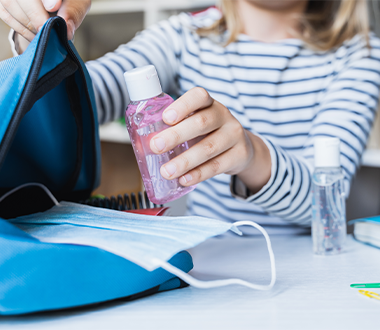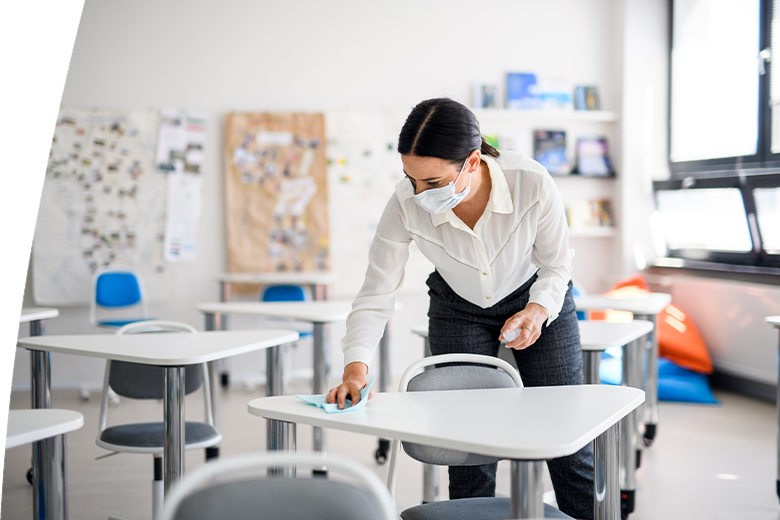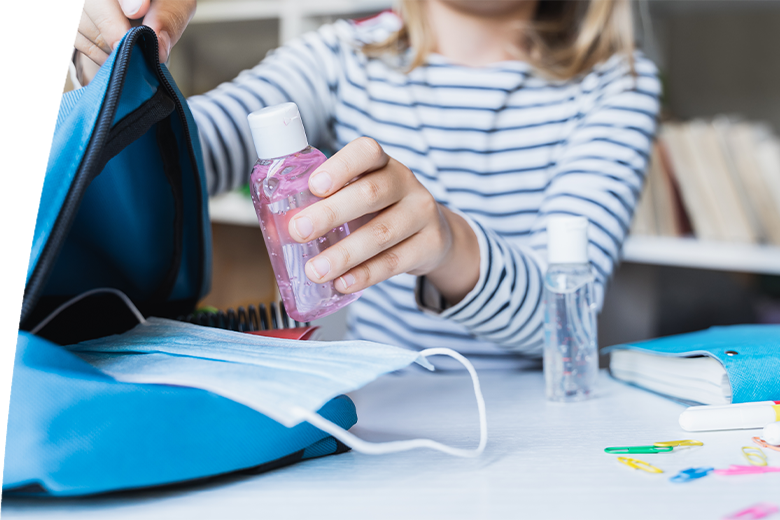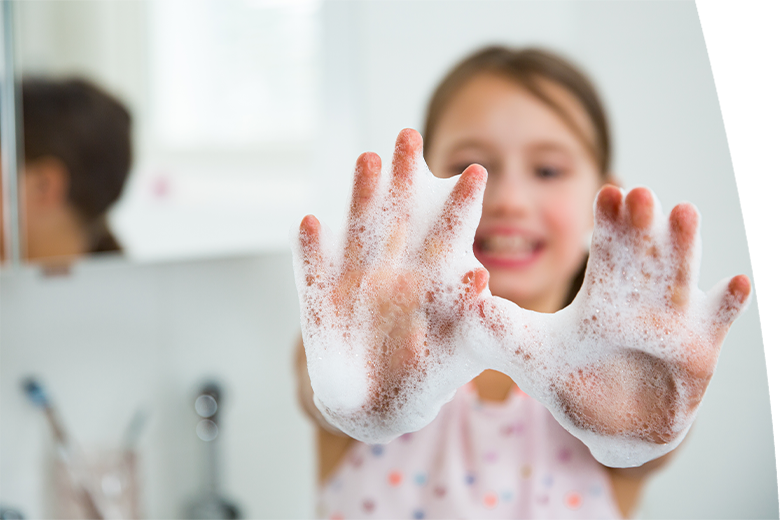What role does hygiene play in educational institutions?

Education is a key part of every child’s and adult’s life. The quality of the environment in which we learn therefore has an extensive impact on our health, well-being and the effectiveness of education. One of the most important but often underestimated aspects is hygiene. What impact does it have on the daily running of schools and other educational facilities? And how can this aspect be improved by you?
Good hygiene reduces costs
By following basic hygiene rules, every school can avoid a large number of absences throughout the year. If children are sick, they should stay home or wear a face mask. In this way, contagion of the entire class or even the school can be prevented. It is also necessary to regularly disinfect surfaces, maintain clean restrooms and encourage children to wash their hands frequently. Do you know how to wash your hands properly and why not indeed underestimate it?

Better concentration of students
Smell and visual cleanliness of space have a psychological effect on motivation to learn. That is why it is important that classrooms, corridors and school facilities are regularly cleaned and ventilated.

Emphasis on quality hygiene products
To maintain a high level of hygiene, it is essential to use quality hygiene products, such as antibacterial soaps, paper towels and cleaning products. Automated hand disinfection systems and touchless toilets are modern solutions that enhance the effectiveness of hygiene measures.
Clean air is felt
Viruses spread through air invisibly but very quickly. Ventilation only may not always help effectively. Therefore, investing in professional air purifiers with virus-killing properties could be a profitable investment for each school.
Education for responsibility and personal hygiene
The hygienic habits that children acquire at school affect their behavior in adulthood. If they learn to wash their hands before eating, keep order in the classroom and use hygiene products, cough and sneeze properly into sanitary handkerchiefs, they will transfer these habits to their everyday life as well. Schools therefore play an important role in forming positive hygiene habits.

Hygiene as part of safety
In addition to health benefits, hygiene also has a direct impact on overall safety in educational institutions. For instance, wet floors or improperly stored cleaning products can cause injuries. Compliance with hygiene regulations thus helps to prevent risks and increase the safety of both children and employees. You can read more about the personal hygiene of children here.
Educational institutions are places where hundreds to thousands of pupils, students, teachers and employees meet every day. Such a concentration of people in one place brings high demands on hygiene and cleanliness. They should therefore always be a priority.
Go to the next article.
Decarbonization in industry: The fastest growing solutions of 2026
Decarbonization is far from being just an ambitious goal on...
Show moreTargeted attacks on retail in 2026: How POS systems, payments, and customer data are at risk
In recent years, retail has become one of the main...
Show moreWhy do colourful napkins increase the sales of drinks and meals?
At first sight, colourful napkins may seem like a small...
Show more



